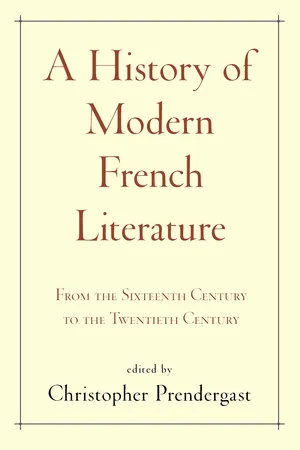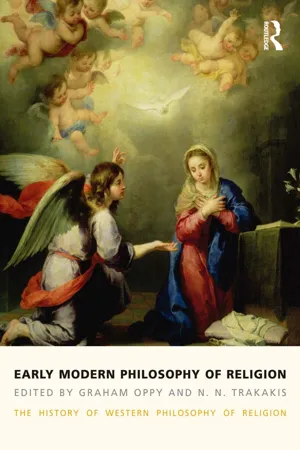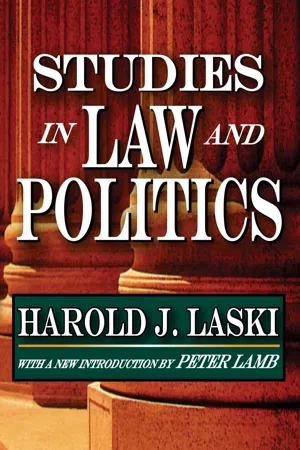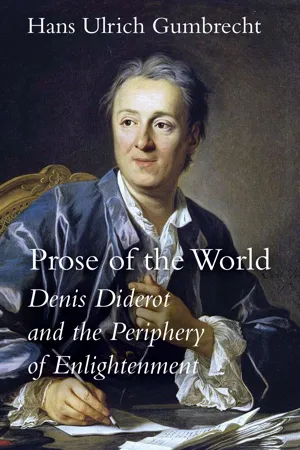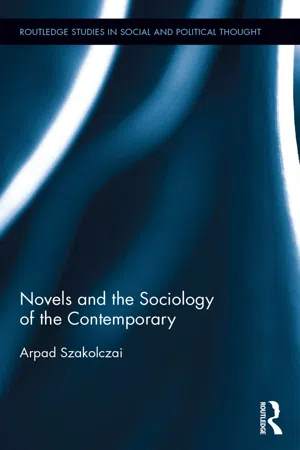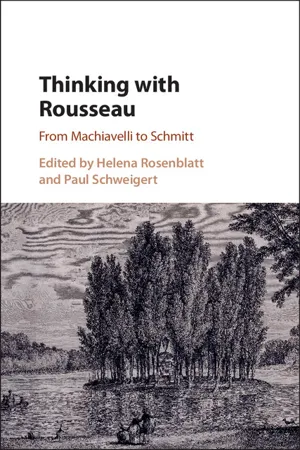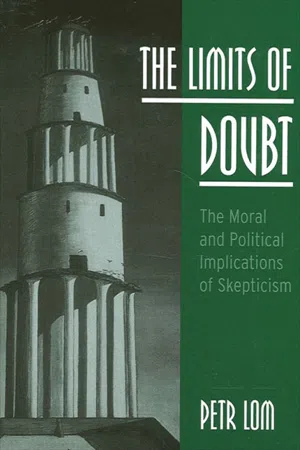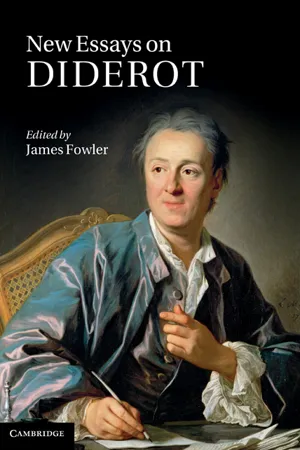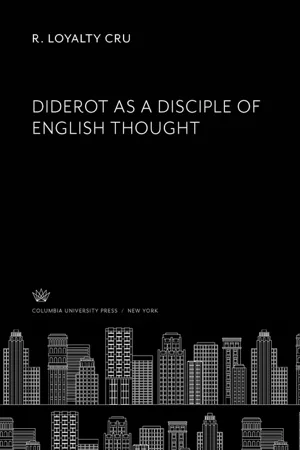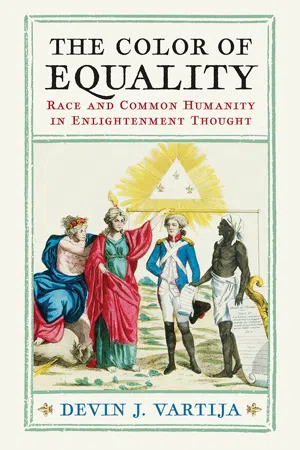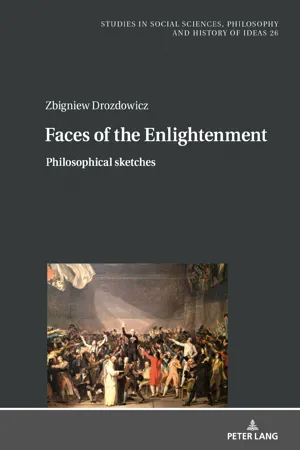History
Denis Diderot
Denis Diderot was an influential French philosopher, art critic, and writer during the Enlightenment. He is best known for editing and contributing to the "Encyclopédie," a comprehensive compilation of knowledge that aimed to promote critical thinking and knowledge dissemination. Diderot's work challenged traditional beliefs and played a significant role in shaping intellectual thought during his time.
Written by Perlego with AI-assistance
Related key terms
1 of 5
12 Key excerpts on "Denis Diderot"
- eBook - ePub
A History of Modern French Literature
From the Sixteenth Century to the Twentieth Century
- Christopher Prendergast(Author)
- 2017(Publication Date)
- Princeton University Press(Publisher)
Le neveu de Rameau, and the Figure of the Philosophe in Eighteenth-Century ParisKATE E. TUNSTALLDiderot is the central figure of the Enlightenment. True, he is not as well known as either the older Voltaire or his exact contemporary, Rousseau, both of whose self-promotional strategies made them into public figures and causes célèbres. However, insofar as he edited, with the mathematician and physicist, d’Alembert, the single most ambitious publishing enterprise of the period, the Encyclopédie, ou Dictionnaire raisonné des arts, des sciences et des métiers (Encyclopedia, or Reasoned dictionary of the arts, sciences and crafts, 1751–72), and, moreover, given that when d’Alembert left the partnership in 1759, he continued to edit that work single-handedly, there can be no question but that Diderot played the crucial role in shaping and disseminating Enlightenment ideas and values. The Encyclopédie, it should be noted, comprises twenty-eight folio volumes, seventeen of which are text, and eleven of illustrations. It contains seventy-four thousand entries, written by more than 130 contributors, including Voltaire and Rousseau; Diderot, in addition to his editorial responsibilities, wrote more than five thousand of the entries himself.This alone accounts for the importance of Diderot in the French and European Enlightenment. In his lifetime, it was for this work that he was primarily known to the public, and not for the works of literature that we read today—La religieuse (The Nun, 1760), Le neveu de Rameau (Rameau’s Nephew, 1761– or 1772–74), Le rêve de d’Alembert (D’Alembert’s Dream, 1769), and Jacques le fataliste (Jacques the Fatalist, 1778–80). The latter were only published posthumously. One explanation for this is that Diderot could not afford to repeat the experience of the summer of 1749, when, following the anonymous publication of his Lettre sur les aveugles (Letter on the Blind, 1749), he was arrested and then imprisoned for three months. The Lettre was not his first publication, and, in fact, he had already acquired something of a reputation: the Paris Parlement (the supreme court) had condemned his Pensées philosophiques (Philosophical Thoughts, 1746) almost as soon as it was published, also anonymously, and decreed that it be “shredded and burned,” while at a more local level, his parish priest had been secretly informing on him to the police, reporting that, in addition to the atheistic Lettre sur les aveugles, he was also the author of the teasingly erotic Les bijoux indiscrets (The Indiscreet Jewels - eBook - ePub
Early Modern Philosophy of Religion
The History of Western Philosophy of Religion, volume 3
- Graham Oppy, N. N. Trakakis(Authors)
- 2014(Publication Date)
- Routledge(Publisher)
Encyclopédie as the very summa of Enlightenment thinking:‘Enlightenment’ had two meanings, both evident in the Encyclopédie : the discovery of truth and its diffusion … The Enlightenment had many critics, but its illuminating influence and achievements were apparent in the history of the next two centuries – the waning of absolutism and superstition, the rise of secular democracy, the understanding of the natural world.(2004: 6)At a time when, for reasons that the philosophes would have readily recognized, secular and spiritual forces are once again at odds in Western civilization, the invocation of Diderot’s name as a standard-bearer against religious intolerance points to his perceived importance as an enemy of anti-rationalism, and a champion of reason and rational enquiry. The question therefore arises of knowing to what extent this reputation is justified, and whether he can indeed be properly regarded as one of the founders of the Enlightenment campaign against religion in general, and against Christianity in particular.EARLY EXPOSURE TO RELIGIONIn one sense, it is quite understandable that Diderot’s relationship to religion and to the Catholic Church should figure so prominently in assessments of his importance over two centuries and more. He was, after all, born into a deeply religious family, with which he retained close links all his life. His uncle was canon of the local cathedral in the eastern French town of Langres, where Diderot was born in 1713 (Hanna 1964). His younger brother, Didier-Pierre, became a priest with strong Jansenist leanings, which created deep hostility between the two men throughout their lives; his younger sister Angélique became a nun, and died insane in a convent in 1748. Diderot himself was educated by Jesuits at the college in Langres, where he showed outstanding brilliance in all his studies, receiving the tonsure in 1726, before proceeding to embark in 1729 on a theology degree at the Sorbonne. We know that he obtained his master’s degree in 1732, and in 1735 a full degree in theology, which entitled him to an ecclesiastical benefice. But at some point thereafter he abandoned formal study, and with it the idea of becoming a priest; for a decade or more he seems to have led a bohemian life, educating himself in a number of disciplines, and earning a precarious living as a private tutor and a reviewer for journals. - eBook - ePub
- Harold Laski(Author)
- 2017(Publication Date)
- Routledge(Publisher)
It is worth insisting that they are only commonplaces because Diderot, and others about him, were prepared to risk their liberty for their diffusion. He organized a great army to do battle for the right of intelligence to the profit of its victories. He gathered about him every man in his generation whose achievement we respect. It is not fanciful to compare the fellowship of the Encyclopaedists to an army upon the march; and to the general who directed its strategy belongs the credit for the victory.IV
Had Diderot done no more than bring the Encyclopaedia to completion he would have an assured place in history. But it is, in fact, only a small part of his labours. In the evolution of philosophy he played an important part in three ways. Beginning as a deist in the English mode of the eighteenth century, he was rapidly converted, largely by his interest in physiological discovery, to an atheistic materialism which, whatever its defects, is a current of decisive importance in the great stream of metaphysics. Here, indeed, he is not an originator; both La Mettrie and D’Holbach played a more important part than he. But what he was striving to do was to extend the meaning of Newtonian physics into a system of all-embracing laws which should resume not less the animate than the inanimate universe. His attempt, with all its vigour and ingenuity, must be held to have failed very largely because it lacks a comprehensive theory of knowledge. But it was a challenge to alternative systems of inestimable value; and its search for a bridge between science and philosophy may be held, without injustice, to be the starting-point for all who seek a rational explanation of life.Nor is this all. Diderot, with Rousseau, must be held to be one of the outstanding figures in the eighteenth-century effort to vindicate the right of human nature to respect. His considered rejection, for example, of Christian asceticism is built upon the insistence that a denial of the right of impulse to satisfaction disfigures the nature of man. He searched for principles of conduct which should at once satisfy the ultimate factors of our constitution and the limitations upon their expression which experience indicates as necessary. He refused to admit that an ethic can be true which starts, as Christianity starts, by assuming that man is in a state of sin. Much of this work is a brilliant exposition only of what was in the mental climate of his generation. Its value, as in the famous Letter on the Blind, - eBook - ePub
Prose of the World
Denis Diderot and the Periphery of Enlightenment
- Hans Ulrich Gumbrecht(Author)
- 2021(Publication Date)
- Stanford University Press(Publisher)
On the one hand, his very lack of a conceptual “system” or well-rounded intellectual “identity” most likely explain why he has always been a readers’ favorite among the great French philosophes of the eighteenth century; on the other hand, and unlike in the cases of Voltaire or Rousseau, this lack has also made it impossible for Diderot’s work to fulfill particular functions or to address particular questions in historically specific situations. His texts have provoked an infinity of commentaries and studies on microscopic problems; there are several well-documented and even well-written biographies; but we have no comprehensive concepts with which to describe Diderot, no well-rounded image, no coherent Anschauung. Herbert Dieckmann, arguably the most eminent specialist within a good hundred years of Diderot scholarship, wisely held back from such comprehensive statements and interpretations; and even the great Jean Starobinski must have felt the impossibility of living up to the task when, in the memorial year of 2013, he ended up republishing his superb Diderot essays as a collection—rather than bringing them together in a new monograph. * * * And yet again, who was Denis Diderot? In our contemporary language, such a question presupposes a distinction between personal (individual) identity and public (social) identity, a distinction that we can emphasize and make visible by reserving the pronoun “Who” for personal identity (that is for all those—often difficult to distinguish—features that seem to make somebody unique), while we connect the word “What” with public or social identity (that is with somebody’s perception in the public space and with the image that she or he is able to project) - eBook - ePub
- Arpad Szakolczai(Author)
- 2016(Publication Date)
- Routledge(Publisher)
He duly tried to slip out of the family home around midnight, but his father caught him and, learning what he was up to, travelled with him to Paris the next day, enrolling him to the school (Trousson 2005 : 30–1). Information about the next, long period of Diderot’s life, up to his marriage, is extremely scarce. Eventually, for reasons and in a manner the details of which we simply ignore, though we can make some guesses, especially given that he would consider for his life priests as seducers, he not only completely lost his faith but also any interest in a stable career, keeping only an unquenchable thirst for knowledge (Trousson 2005 : 41). As he refused to embark on any concrete line of study in spite of repeated warnings by his father, his allowance was cut and thus he spent four or five years in dire straits—though both his parents found means to offer him occasional assistance. During this period, he evidently lived a life of some libertinage; Diderot admitted that in his first free years of Paris he lived a ‘quite dissolute’ existence (Trousson 2005 : 49). He certainly had a great passion for the theatre, especially comedies (Trousson 2005 : 225); as he later recounted, he lived in between the Sorbonne and the ‘boards’ (Trousson 2005 : 47). He even had the dream of becoming an actor, and a main reason was that in this way he could be close to the actresses, who were ‘easy’ (Trousson 2005 : 47). Diderot as Enlightened Critic Diderot is best known through his launching of the Encyclopédie, this precursor to and already monument of positivism; thus, he was considered primarily as a philosopher and a thinker; in particular, as a precursor to critical thinking. The significance of Diderot as critic is illustrated by the claim, made by René Wellek in his classic book A History of Modern Criticism, that there is a break between Voltaire and Diderot, and really the latter should be considered as the first critic (Wellek 1955, I: 46) - eBook - PDF
Thinking with Rousseau
From Machiavelli to Schmitt
- Helena Rosenblatt, Paul Schweigert(Authors)
- 2017(Publication Date)
- Cambridge University Press(Publisher)
At stake for both of them in their late works was the question of how we can gain knowledge of man, and more specifically whether our knowledge of man should come from within or outside the self. These questions went to the heart of the Enlightenment definition of the philosophe, according to which “the source of our knowledge is entirely outside of ourselves.” 5 Diderot remained a steadfast materialist until his death, and his last project was an encyclopedic survey of the physiological sciences of his time. But he was nonetheless deeply dissatisfied with the account of man he found in the works of his fellow materialists. In his Réfutation d’Helvétius, written between 1773 and 1776–77, Diderot aligned himself with Rousseau in refuting Claude-Adrien Helvétius’ philosophy of man. As Jean Fabre argued in a classic article published in 1961, Diderot’s late work can only be understood “by a perpetual reference, manifest or secret, to that of Rousseau.” 6 But according to Fabre, this late dialogue was anything but mutual, for during the same period “Diderot had ceased to exist for Jean-Jacques.” 7 I will suggest, on the contrary, that Rousseau’s last work, Reveries of the Solitary Walker, written between 1776 and his death in 3 In the second volume of his four-volume series on the Enlightenment and the French Revolution, Enlightenment Contested, Israel distinguishes between an early, radical Rousseau and a later, counter- Enlightenment Rousseau. In his third volume, Democratic Enlightenment, he characterizes Rousseau as a contradictory mixture of radical, moderate, and counter-Enlightenment tendencies. See Enlightenment Contested: Philosophy, Modernity, and the Emancipation of Man 1670–1752 (Oxford: Oxford University Press, 2006), p. 11; and Democratic Enlightenment: Philosophy, Revolution, and Human Rights 1750–1790 (Oxford: Oxford University Press, 2011), p. 21. 4 Israel, Democratic Enlightenment, p. 109. 5 C. - eBook - PDF
The Limits of Doubt
The Moral and Political Implications of Skepticism
- Petr Lom(Author)
- 2001(Publication Date)
- SUNY Press(Publisher)
And Diderot is no exception. Despite his doubts in Rameau’s Nephew, one principle remaining 72 The Limits of Doubt fixed in Diderot’s thought is the commitment to human freedom. This ought to be clear enough from his twenty years of work on the Encyclopédie, accompanied by continual risk of censorship and arbitrary imprisonment. In his own articles in the Encyclopédie, particularly his piece “Autorité,” Diderot stridently argues that political authority is derived from popular consent, that there is no such thing as divine right to sanction political office, and that the preservation of liberty “is the fertile source of all great things and all fine actions.” 65 Nonetheless, Diderot did—albeit briefly—fall under the spell of enlightened despotism in his relationship with Catherine II, the em- press of Russia, for whom he became official librarian. That Diderot came under Catherine II’s influence should not be surprising, for she initially seemed to hold out the promise of enlightened political re- form. At the beginning of her rule, she planned to establish a new code of laws to be inspired by Montesquieu and Beccaria, and to be in- formed by the advice of the nation as a whole. Her Nakaz, or “Instruc- tion for Reform,” was to include liberal and humane ideas such as the principle of separation of powers, suggestions for penal reform repudi- ating torture, and a questioning of the wisdom of capital punishment. In practice, however, Catherine II’s reforms amounted to little; her foreign policy was no less aggressive; her domestic policy was no less autocratic than those of her predecessors; the conditions of Russian serfs only deteriorated under her rule. She was equally as disappointing to the philosophes as had been the Prussian Frederick II, who had also tempted them—particularly Voltaire—with the hopes of enlightened reform. - eBook - PDF
- James Fowler(Author)
- 2011(Publication Date)
- Cambridge University Press(Publisher)
Diderot and d’Alembert insist that the encyclopedic text they envision cannot be the work of one person, for practical as well as theoretical reasons. No one individual could claim mastery over all the areas of knowledge and technical expertise the Encyclopédie sought to make accessible. Only what Diderot, expanding upon the work’s title, calls ‘une société de gens de lettres et d’artistes’ could aspire to such coverage: a group of learned individuals and artists ‘[qui sont] occupés chacun de sa partie, & liés par l’intérêt général du genre humain, & par un sentiment de bienveillance réciproque’ (‘[who are] each involved with their own share and are joined by their general interest in humankind and by a feeling of mutual goodwill’). 10 The article ‘Philosophe’, attributed to Du Marsais, privileges the philosophe as the figure who, anticipating the latter-day French intellectual, best represents this humanitarian disinterestedness. Whether this figure rises above particular interests, or whether it was in fact a role that many eighteenth-century writers fashioned for themselves precisely to serve such interests, the relation to the conception, production, dissemination and use of knowledge that the Encyclopédie inaugurates is not only critical and disciplinary; it is collective as well. Diderot and d’Alembert defend their work against critics represent- ing crown and church by claiming that the encyclopedic team represents nothing so much as disinterested and well-intentioned experts labouring for the greater good of humankind. In this way the Encyclopédie project dovetails with the larger critical and reformist project of the Enlightenment. The Encyclopédie has often been presented as a kind of multi-volume manifesto of Enlightenment, a major document in the centuries-long intellectual tradition of humanism, and one 56 daniel brewer of the inaugural texts containing the origins of a modern way of knowing. - J.B. Shank(Author)
- 2008(Publication Date)
- University of Chicago Press(Publisher)
parti philosophique. In narrating their own history, however, the philosophes rarely paid attention to the accidents and contingencies that had actually shaped this history. Like all political movements, they constructed a mythology of origins consonant with their own interests, and to their credit their story has proven so powerful that it has since been accepted uncritically by historians and modern Enlightenment ideologues ever since. Speaking from a position somewhere outside the Enlightenment, this book has offered a different and more complex account of this history, one that has tried to show the actual historical linkages that tied Newton to Enlightenment in France. Newton’s solitary genius is still offered far too often as the singular reason for his status as the father of modern physics, while the French Enlightenment continues to be celebrated too frequently as Newton’s natural and unmediated off spring. Each of these mythologies needs to be scrutinized, and if this book strikes a heavy blow against this overly pervasive and persuasive edifice, it will have accomplished its goal.1 . My account of Diderot’s early years is drawn primarily from “Part I : The Testing Years,” in Arthur M. Wilson, Diderot (Oxford, 1972). Other works that have been important in shaping my understanding of Diderot and his work are Robert Darnton, The Business of Enlightenment: The Publishing History of the Encyclopédie, 1775–1800 (Cambridge, 1979); Lynne Dixon, Diderot, Philosopher of Energy (Oxford, 1988); Jacques Proust, Diderot et l’Encyclopédie (Paris, 1962); Paul Vernière, Spinoza et la pensée française avant la Révolution (Paris, 1954), esp. 528–611; and Franco Venturi, Jeunesse de Diderot (1713–1753), trans. by Juliette Bertrand (Geneva, 1967).2 . Essai sur la société des gens de lettres et des Grands, sur la reputation, sur les mécènes, et sur les recompenses litteeraires, in Oeuvres de d’Alembert, 5 vols. (Paris, 1821–1822),4: 335–373.3 . Wilson, Diderot, 15–28.4 . Review of Histoire de Grèce, traduite de l’anglais de M. Temple Stanyan, in Journal des savants (1743): 451–462, (1745): 547–555, (1746): 231–238. Diderot’s translation skills are noted in the last review, 238.5 . Wilson, Diderot, 47–50.6 . See Lawrence Klein, Shaftesbury and the Culture of Politeness: Moral Discourse and Cultural Politics in Early Eighteenth-Century England (Cambridge, 1996).7 . Diderot, Principes de la philosophie morale; ou Essai de M.S*** sur le mérite et la vertu. Avec réflexions (Amsterdam, 1745).8 . Review of Principes de la philosophie morale, ou Essais de M. S.*** , in Jugemens sur quelques ouvrages nouveaux 8:86–87.9 . Review of Principes de la philosophie morale- eBook - PDF
- R. Loyalty Cru(Author)
- 2019(Publication Date)
- Columbia University Press(Publisher)
THE ENCYCLOPEDIST 241 volumes by Lebreton, who was haunted by the fear of the Bastille, and the despair of Diderot, enraged by such treachery, have been dramatic-ally narrated by most biographers of Diderot. Diderot had undertaken all the articles relat-ing to philosophy and to the mechanical arts, beside the wearisome task of filling in whatever articles were not undertaken by any of the con-tributors. The less technical of these pieces have been collected and republished in his OEuvres Completes by Assézat and Tourneux (vol. XIII—XVII). Furthermore, he wrote a Prospectus of the Encyclopédie, while his friend and associate D'Alembert wrote a Preliminary Discourse. —Looking over these various contri-butions, we find in them a strong current of Ba-conian thought, particularly in the Prospectus, the Preliminary Discourse, and Diderot's article on A r t ; the articles 011 the arts and crafts owe very little to English works, but many articles on miscellaneous subjects are directly borrowed from English sources; the articles on philosophy are to a large extent translated from Brucker's Latin History of Philosophy. Because their undertaking was known to 17 242 DIDEROT AND ENGLISH THOUGHT have owed its inception to Chambers's Cyclo-paedia, the two editors of the Encyclopedic seem to have been anxious to disclaim any indebted-ness to the English compilation. The great novelty of their encyclopedic plan consisted in having conceived the work as collective : the idea of mustering all the men of genius or talent of one age and country to produce an abstract of human knowledge, the philosophic and scientific testament of a generation, was Diderot's very own. Had it not been for this epoch-making innovation in encyclopedia-writing, the Encyclo-pedic would be of no more interest to us to-day than the translation of James's Medicinal Dic-tionary. - eBook - ePub
The Color of Equality
Race and Common Humanity in Enlightenment Thought
- Devin J. Vartija(Author)
- 2021(Publication Date)
- University of Pennsylvania Press(Publisher)
Dorinda Outram and many others are right to construe the Enlightenment as “a series of interlocking, and sometimes warring problems and debates,” 8 but only if one qualifies this statement by adding that within these debates, a cluster of ideas connected to the new science and human betterment emerges. After all, certainly every historical epoch is marked by warring problems and debates. In other words, the Enlightenment—among all of the recent discussion of a radical versus moderate Enlightenment, a religious versus secular Enlightenment, a national versus European or colonial Enlightenment, and many more in between—can still be viewed as a movement possessing a thin but meaningful coherence that is reflected in the Encyclopédie. 9 This idea was expressed by Diderot himself in the immensely important entry “Encyclopedia,” where he wrote that “everything must be examined, everything must be sifted, without any exceptions and without restraint,” emphasizing the quintessential esprit de critique of the Enlightenment in general and of the Encyclopédie in particular. But Diderot also stated that the work had an additional aim: “To change the common mode of thinking.” 10 The idea that the common mode of thinking should be changed implies that Diderot had some idea of what direction this change should take, and indeed, in his correspondence, we see that he had just that: “Over time, this work will certainly produce a revolution in minds, and I hope that the tyrants, the oppressors, the fanatics, and the intolerant will not win - eBook - PDF
Faces of the Enlightenment
Philosophical sketches
- Zbigniew Drozdowicz(Author)
- 2020(Publication Date)
- Peter Lang Group(Publisher)
There may, however, be many such positions. What interests him in particular, and which he grants special importance to, is the battle waged by many philosophers of that period with early philosoph- ical systems on the one hand, and on the other their defence conducted by a philosophical minority. Those he places within this minority include the French mathematician and philosopher Jean Le Rond d’Alembert, and the German mathematician and philosopher Gottfried Wilhelm Leibniz. He acknowledges the latter not only as the most significant figure of that era, but also as the one capable of indicating most profoundly and most accurately the strengths of sys- tematic and systemic thought. Naturally, Leibniz was not marginalised by other 3 “That Diderot did not make anti-clericalism the dominant business of his life; all the same, he was one of Christ’s most violet accusers in the great trial [of that Age – author’s note]” (ibid., p. 382). 4 Cf. E. Cassirer, Philosophy of the Enlightenment, Princeton 1979, p. 1 et seq. The Multitude of Approaches to Enlightenment... 12 researchers of the Enlightenment either, but there were and are relatively few who recognised his philosophical views as representative for that particular age. We have another type of attempt at “dressing” the Enlightenment in a single “costume” in Michel Foucault’s treatise Madness and Civilization: A History of Insanity in the Age of Reason The work’s author links the titular Age of Reason with the Age of Enlightenment, while recognising that which constituted its vital “tissue” as the titular insanity. In this voluminous monograph, he analyses it in great detail, on the basis of diverse documents from the era, and reaches the gen- eral conclusion that in that “Age of Reason”, the said reason was either mad or at least betrayed certain signs of insanity.
Index pages curate the most relevant extracts from our library of academic textbooks. They’ve been created using an in-house natural language model (NLM), each adding context and meaning to key research topics.
